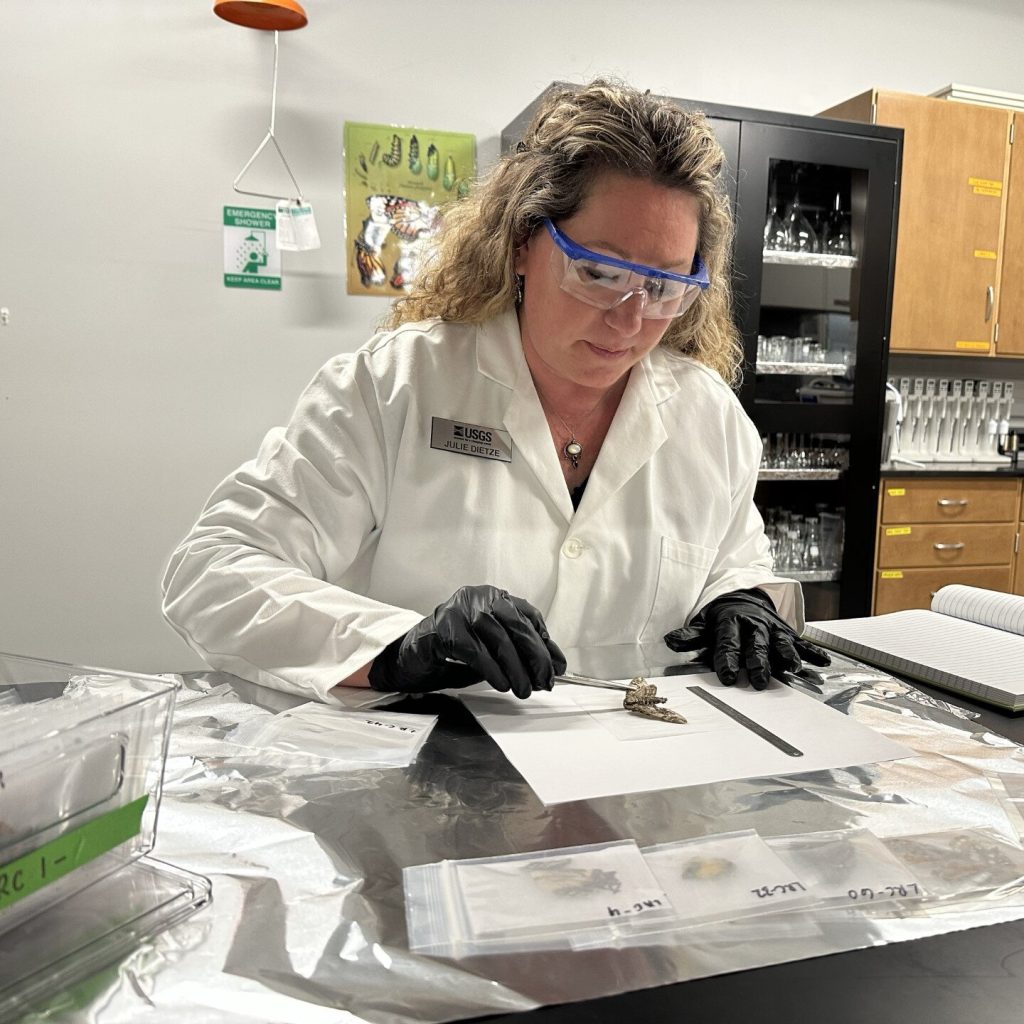Residents of six states have been asked to contribute to a scientific study on population declines by sending in dead butterflies, moths, and other Lepidoptera.

If you have any dead butterflies lying around, the U.S. government wants them. The United States Geological Survey (USGS), an agency that researches environmental risks, is requesting residents of six states to mail in dead butterflies, moths, and skippers to assist in studying the population decline of these insects.
The goal is to establish the Lepidoptera Research Collection, a national storehouse based in Kansas, where citizens can contribute their specimens. The submitted butterflies and moths will be available for federal scientists to study and test for contaminants and other environmental factors.
Julie Dietze, a physical scientist at the USGS in Kansas, came up with the idea for this nationwide call to action. She hopes that engaging citizens in citizen science will yield valuable results.
Since the pilot program began in April, the agency has received approximately one hundred submissions. While this is a modest number, it is seen as encouraging progress. Dietze hopes that participation will increase over time.
Insects, including lepidopterans, are experiencing significant declines worldwide. The monarch butterfly, a focus of the USGS study, is an endangered species. Over the past two decades, their numbers in the United States have decreased by 90 percent, equivalent to a decline of 900 million butterflies.
Multiple factors contribute to this decline, including climate change, habitat loss, and the use of pesticides. Arthur Shapiro, an ecology professor at the University of California, Davis, who has extensively researched Lepidoptera decline, suggests that neonicotinoid insecticides may be a significant culprit.
Butterflies serve as indicators of ecological processes, and their decline suggests broader environmental issues. Scientists have long studied butterflies to gain insights into habitat loss and other factors that impact ecosystems.
The USGS plans to test the submitted butterflies and moths for contaminants such as glyphosate and neonicotinoids. The deadline for mail-in submissions is November 1, but if the program gains traction, it may be extended to other states and insects.
The six states participating in the pilot program were chosen because they lie in the migratory pathway of the Eastern monarch butterfly. Residents of these states can place their dead butterflies and moths in a resealable plastic bag and send them in a sealed envelope to the collection center in Lawrence, Kansas. Damaged specimens are accepted as long as they are larger than 2 inches. The USGS advises freezing the bugs to preserve them if they cannot be shipped within three days.

When the U.S.G.S. flier was posted in a Texas environmental volunteer Facebook group by Cindy Chrisler, it received over 4,000 post impressions, a record for the group.
Cindy Chrisler, a 64-year-old plant enthusiast from Georgetown, Texas, sent in two lunate zale moths and a gulf fritillary butterfly with a damaged wing that she found in her garden. She sees the USGS program as an opportunity for citizen scientists to contribute to scientific knowledge.
Chrisler has been conducting butterfly surveys in Spicewood, Texas, as part of a citizen science project. She has noticed a significant decline in butterfly species over the past three years, which aligns with the broader decline observed by scientists.

